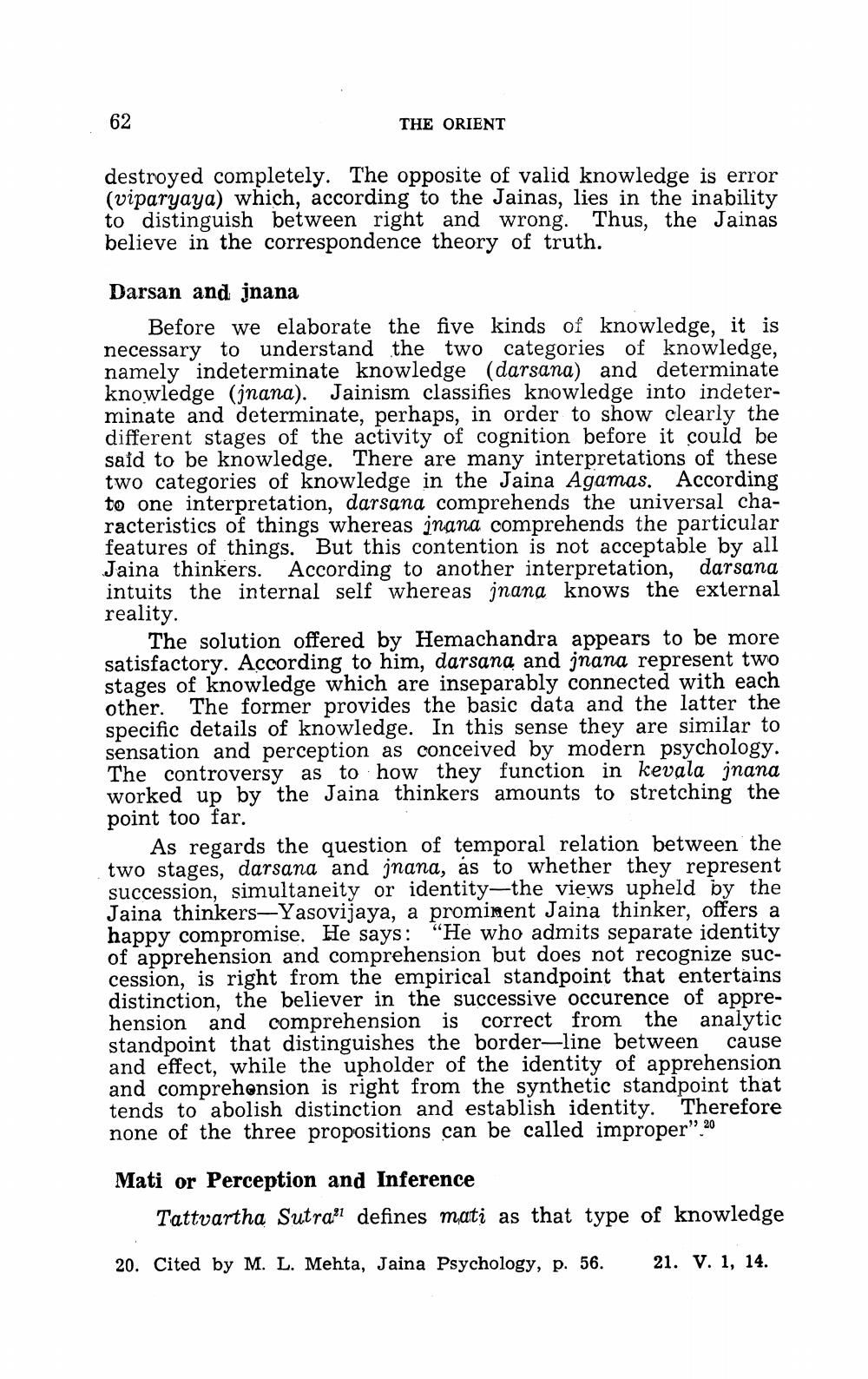________________
THE ORIENT
destroyed completely. The opposite of valid knowledge is error (viparyaya) which, according to the Jainas, lies in the inability to distinguish between right and wrong. Thus, the Jainas believe in the correspondence theory of truth.
Darsan and jnana
Before we elaborate the five kinds of knowledge, it is necessary to understand the two categories of knowledge, namely indeterminate knowledge (darsana) and determinate knowledge (jnana). Jainism classifies knowledge into indeterminate and determinate, perhaps, in order to show clearly the different stages of the activity of cognition before it could be said to be knowledge. There are many interpretations of these two categories of knowledge in the Jaina Agamas. According to one interpretation, darsana comprehends the universal characteristics of things whereas inana comprehends the particular features of things. But this contention is not acceptable by all Jaina thinkers. According to another interpretation, darsana intuits the internal self whereas jnana knows the external reality.
The solution offered by Hemachandra appears to be more satisfactory. According to him, darsana and jnana represent two stages of knowledge which are inseparably connected with each other. The former provides the basic data and the latter the specific details of knowledge. In this sense they are similar to sensation and perception as conceived by modern psychology. The controversy as to how they function in kevala jnana worked up by the Jaina thinkers amounts to stretching the point too far.
As regards the question of temporal relation between the two stages, darsana and jnana, as to whether they represent succession, simultaneity or identity-the views upheld by the Jaina thinkers-Yasovijaya, a prominent Jaina thinker, offers a happy compromise. He says: "He who admits separate identity of apprehension and comprehension but does not recognize succession, is right from the empirical standpoint that entertains distinction, the believer in the successive occurence of apprehension and comprehension is correct from the analytic standpoint that distinguishes the border-line between cause and effect, while the upholder of the identity of apprehension and comprehension is right from the synthetic standpoint that tends to abolish distinction and establish identity. Therefore none of the three propositions can be called improper" 20
Mati or Perception and Inference
Tattvartha Sutra" defines mati as that type of knowledge
20. Cited by M. L. Mehta, Jaina Psychology, p. 56.
21. V. 1, 14.




